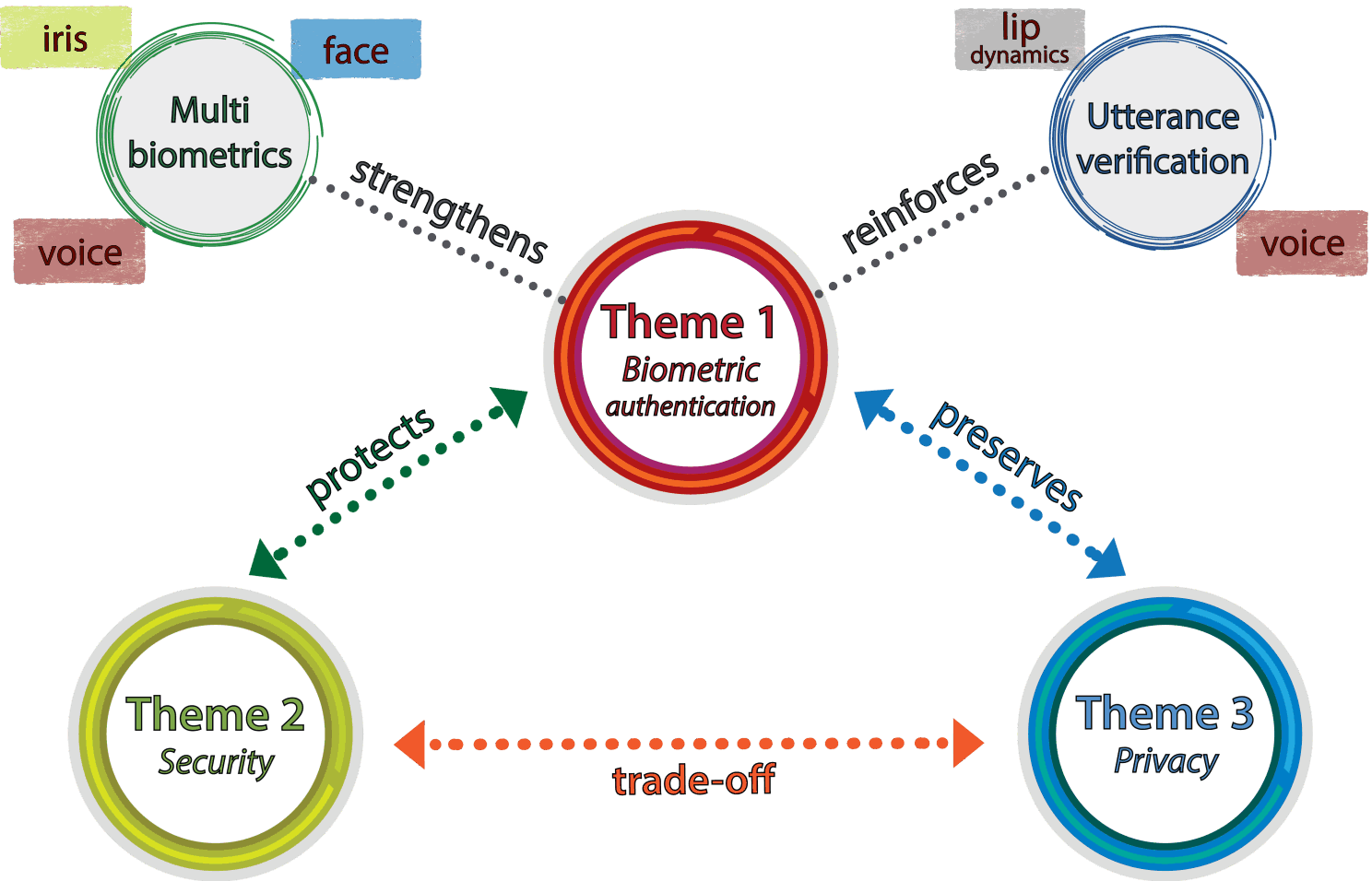Funding Agency:
Deutsche Forschungsgemeinschaft (DFG) and
Agence Nationale de la Recherche (ANR).
Team members: Hochschule Darmstadt, EURECOM and Inria
Performance period: April 2019 – March 2022
Project description:
In spite of the numerous advantages of biometric recognition systems over traditional authentication systems based on PINs or passwords, these systems are vulnerable to external attacks and can leak data. Presentations attacks (PAs) – impostors who manipulate biometric samples to masquerade as other people – pose serious threats to security. Privacy concerns involve the use of personal and sensitive biometric information, as classified by the GDPR, for purposes other than those intended.
Multi-biometric systems, explored extensively as a means of improving recognition reliability, also offer potential to improve PA detection (PAD) generalisation. Multi-biometric systems offer natural protection against spoofing since an impostor is less likely to succeed in fooling multiple systems simultaneously. For the same reason, previously unseen PAs are less likely to fool multi-biometric systems protected by PAD.
RESPECT, a Franco-German collaborative project, explores the potential of using multi-biometrics as a means to defend against diverse PAs and improve generalisation while still preserving privacy. Central to this idea is the use of (i) biometric characteristics that can be captured easily and reliably using ubiquitous smart devices and, (ii) biometric characteristics which facilitate computationally manageable privacy preserving, homomorphic encryption.
The research focuses on characteristics readily captured with consumer-grade microphones and video cameras, specifically face, iris and voice. Further advances beyond the current state of the art involve the consideration of dynamic characteristics, namely utterance verification and lip dynamics. The core research objective is to determine which combination of biometrics characteristics gives the best biometric authentication reliability and PAD generalisation while remaining compatible with computationally efficient privacy preserving BTP schemes.

